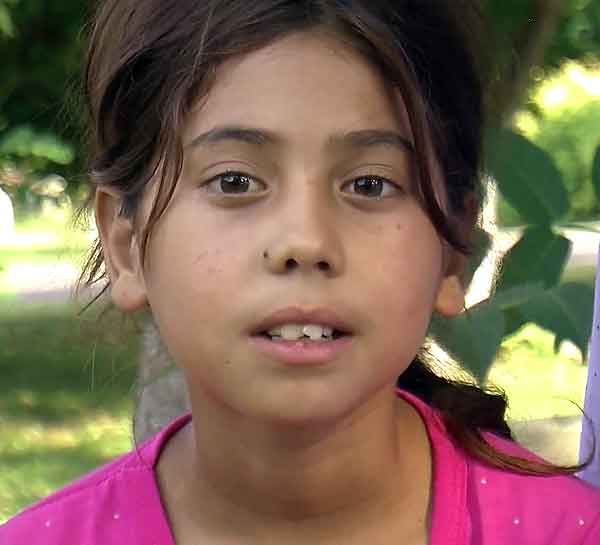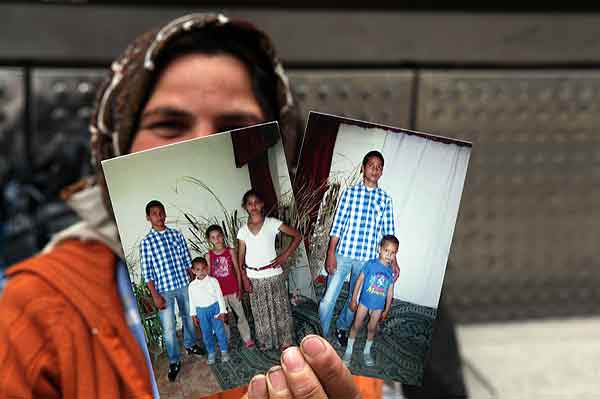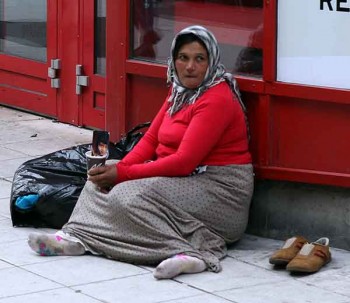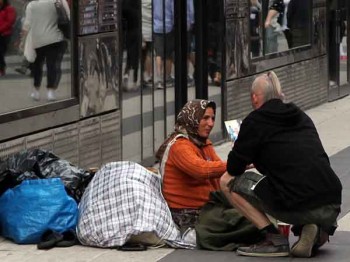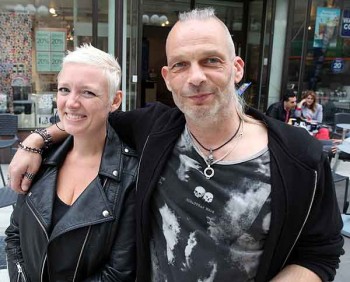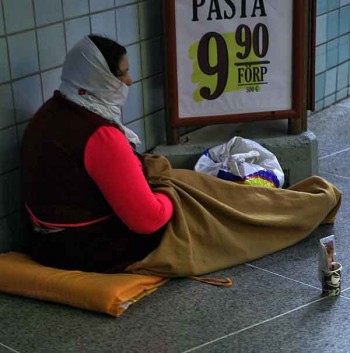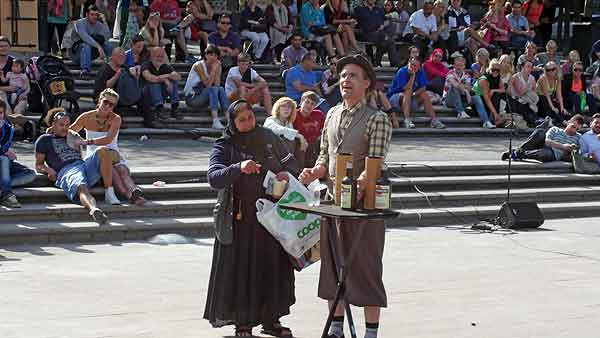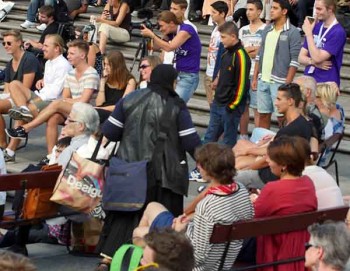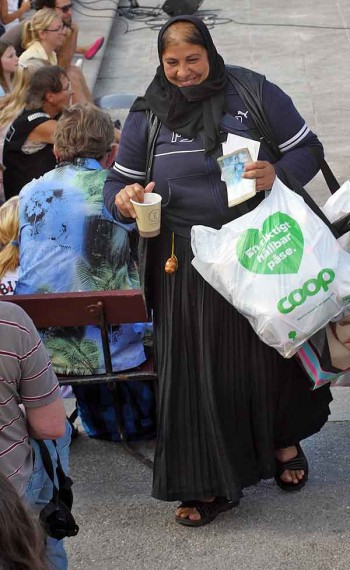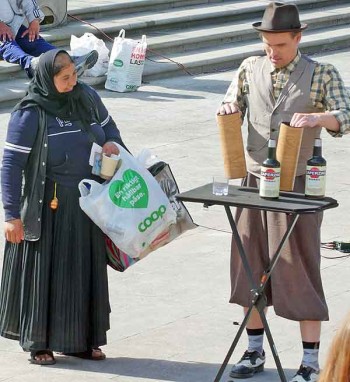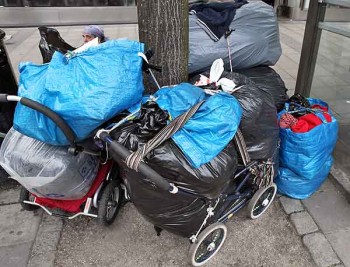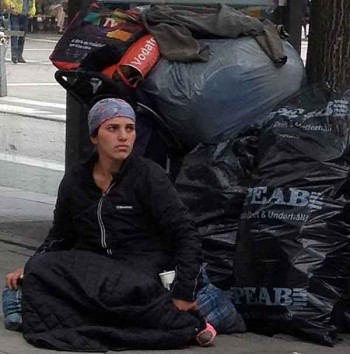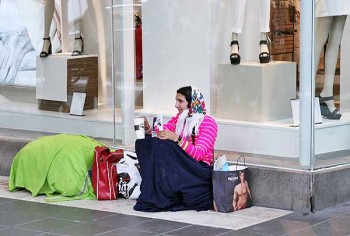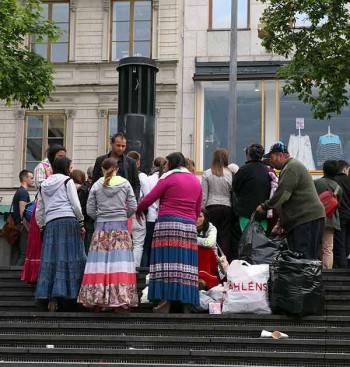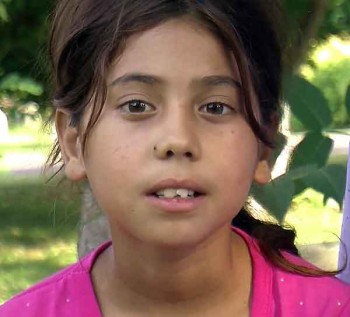
I recently wrote about beggars on the streets of Stockholm. I observed that an abundance of beggars are now stationed in the streets, and that they are mostly from Romania. I argued that these beggars are organized, and possibly trafficked, that a large portion of collected money goes to “bosses,” and that Swedes are naive and therefore an easy market for the begging enterprise, which is in large part social engineering. The article became quite controversial, especially in Sweden.
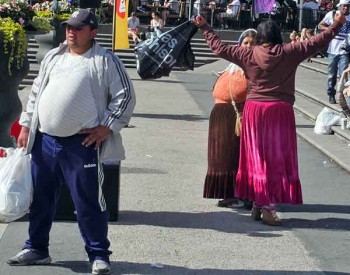
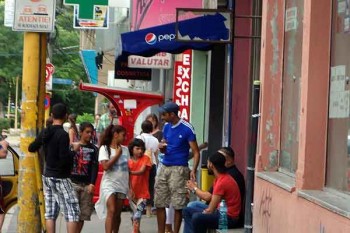
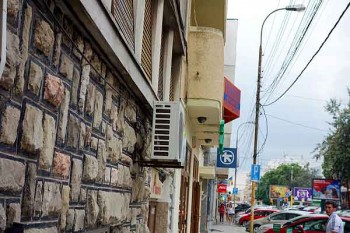
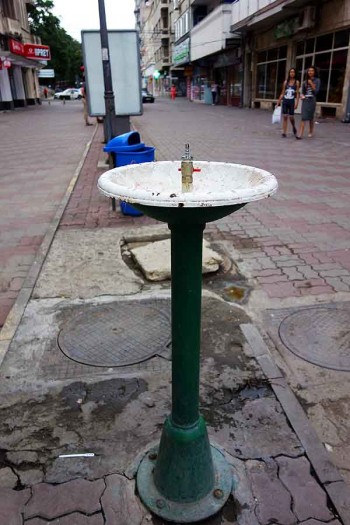
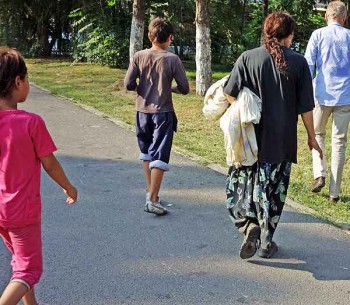

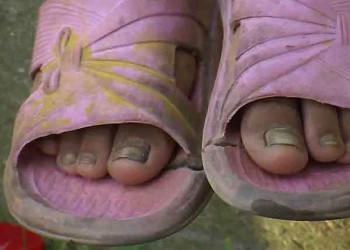
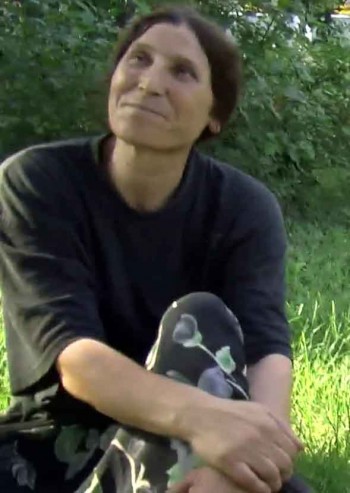

Now, after making a trip to Romania, I have some follow-up information. (But you have to read through my rant before you get it.)
Romanian beggars in Sweden
Swedes are reluctant to believe that their cities and towns have been besieged by professional beggars. Despite the thousands of Romanian beggars in evidence, Swedes stubbornly insist that these are simply individual unfortunate humans who can survive by no other means. For some reason, Swedes excuse them from working for a living. Despite the fact that the Romanian beggars (individually!) all use the exact same posture, the same dress mode, the same plastic bundles of personal effects, the same blanket-wrap and paper cup and laminated photo—even the exact same laminated photo of the very same children. Despite the fact that prime “locations” seem to be continuously occupied, with methodical rotations of personnel so that the position is never vacant, never vulnerable to being usurped by a competitor. Despite the fact that these locations follow a scheme favoring the doors of particular grocery and liquor stores and subway entrances, all over Stockholm and all over Sweden.
Really. Are these Romanian beggars—all the several thousands of them—each sole and separate individuals, each uneducated, each unable to work, each self-organized?
Is Sweden a country of ostriches with their heads buried in the sand? Not quite. Sweden holds a native population intensely dependent on social proof. Everyone is terrified of committing inappropriate behavior, voicing an unpopular belief, not conforming to the group mentality. Everyone’s afraid of appearing to lack compassion, sympathy, charity, and brotherly love. Everyone’s afraid of appearing racist.
For an excellent example of this attitude, take a look at an August 28, 2014 article in Metro, the free paper distributed on Swedish trains. “No, the beggars are not controlled by criminal gangs,” is a translation of the Swedish headline. Its main source of intelligence is a Swedish “homelessness coordinator.” I don’t know, but I would suspect that Romanians who occupy Sweden for the purpose of begging do not go to the state for housing. That’s why they have bosses! To organize them, find them places to sleep. Also note that they carry their possessions around with them in sacks, like old-fashioned hobos.
Other sources in the article tiptoe through their interviews, cautiously hedging with evasive statements like this police officer’s: “‘It is very difficult to say that begging is organized,’ says Stockholm Police Peter Enell.” The article also makes short shrift of the statements by “a police officer with roots in Romania.” To me, the Metro article is laughable. Have a look. Or don’t waste your time.
To find out more about Romanian beggars, Bob Arno and I went investigating in Romania.
We met with a highly experienced police officer and another official in the city of Constanta, neither of whom would like to be named. Both told us that Romanians who beg outside of Romania are definitely organized. (I did not ask about beggars inside Romania.)
I asked if poor villagers sought out begging gang-leaders for assistance, or if villagers were recruited by the gangsters. They are recruited, I was assured. They are desperately poor, and they are Roma. On their own, they could not afford foreign travel. They require the assistance of leaders (bosses, aka gangsters) who organize their transportation. Of course, these bosses must be repaid.
The police officer told us that local gangsters who head begging rings gamble away much of the bounty. Other investigations show that begging and pickpocketing proceeds transform destitute village shacks into relative mansions with European luxury cars parked in driveways.
The official pointed out a number of Roma men drinking on the sidewalks. They are robbers, he said.
The police officer said that people are still maimed for the purpose of begging. I did not get clarification, but I take this to mean that it is children who are maimed. The officer described a horrendous practice, in which adults push a child into slow-moving traffic. When the child is hit and injured, the adults demand cash on the spot from the driver in order to not involve the police.
It’s hard to believe that this barbaric savagery really happens. Yet, the officer told us that this exact atrocity had occurred only two days before our meeting, right in the center of town, in front of Tomis Mall (near where we found our pickpockets the next day). I can’t get the nightmarish image out of my head.
I must presume that the adults were not the parents of the child victim. Who is the child, then? Stolen? Purchased? Rented? I also presume that the child, with its unpredictable injuries, is intended to become a compelling beggar who will attract sympathy and more cash with its twisted limbs and scarred skin.
This anachronism is difficult to grasp in modern, civilized society. It’s impossible to imagine the desperation and cold-bloodedness that leads to such an industry.
(It brings to mind the 1989 novel Geek Love, by Katherine Dunn, in which a circus family man concocts chemical cocktails for his pregnant wife, thereby creating his own deformed children for his own lucrative freak show. However, those children are loved. Great book!)
Roma in Romania
Bob and I spoke with a gypsy family that happened to walk past us in Constanta, Romania. Our translator begged us not to, insisting that it would bring trouble and they’d demand money. He said they wouldn’t speak much Romanian and he didn’t speak any Romany. Bob persisted, and the family sat down in a nearby park, amenable and unperturbed.
They were clearly penniless. The mother’s clothes were black with muck and she carried a grubby blanket. The children, eight and eleven years old, were bright and alert. They answered Bob’s questions with the same trepidation any shy children would, glancing at their mother, who smiled back and nodded. The children attended school. The mother had not.
I was enchanted by the little girl, whose scarred and dirty face was beaming one moment, serious the next. Her radiant smile baring two chipped front teeth hinted of a tough life. Her rubber sandals were cracked, broken, and dirty. Her feet were caked with grime, her toenails chipped and encrusted. She wants to be a doctor.
The mother has five children: 3, 8, 11, 15, and 20. They live in a house where they pay a small rent. The children’s father is very ill, she told us. He was hit in the head recently. But she doesn’t drink or smoke, she emphasized, as if to counter an unsaid accusation. Also, her brother has been arrested and is in jail for two years. She didn’t elaborate, but added that she’s not afraid of police. She’s sad that she doesn’t have her own house—that’s her dream. To support her family, she collects plastic bottles.
“You ask hard questions,” our translator said, “very personal.”
Now Bob beat around a bush. Without asking directly, he tried to find out if the family had been approached by human traffickers or gangsters offering them a better life. He spoke directly to the children.
Our translator was not familiar with our peculiar area of interest and had no idea what we were getting at—which is just the way we wanted it. No interfering, no answering on behalf of the family or spinning their replies. It was interesting to observe his change in attitude. He softened toward the children, he was charmed by them, and impressed by the mother’s candid and sincere statements.
When Bob invited the mother to ask him questions, she had none. She simply smiled and said “I’m glad that you asked us all these questions and pleased that you are interested in our life.”
The family did not ask us for money, though we gave them some at the end. The children handled the bills reverently, then handed them to their mother. The woman was surprised and grateful.
Criminal Romanian begging rings
I have not seen any children (Roma or otherwise) begging in Sweden. I’m sure it wouldn’t be tolerated. However, Romanian children beggars and pickpockets are plentiful in England, Italy, Spain, France, and probably additional European countries, but those I have listed I have personal experience with.
Here’s a 2-minute BBC clip on Romanian child-beggars, human trafficking, begging-ring bosses, and new riches in poor Romanian villages.
http://www.youtube.com/watch?v=9n3K2OEmTe0

